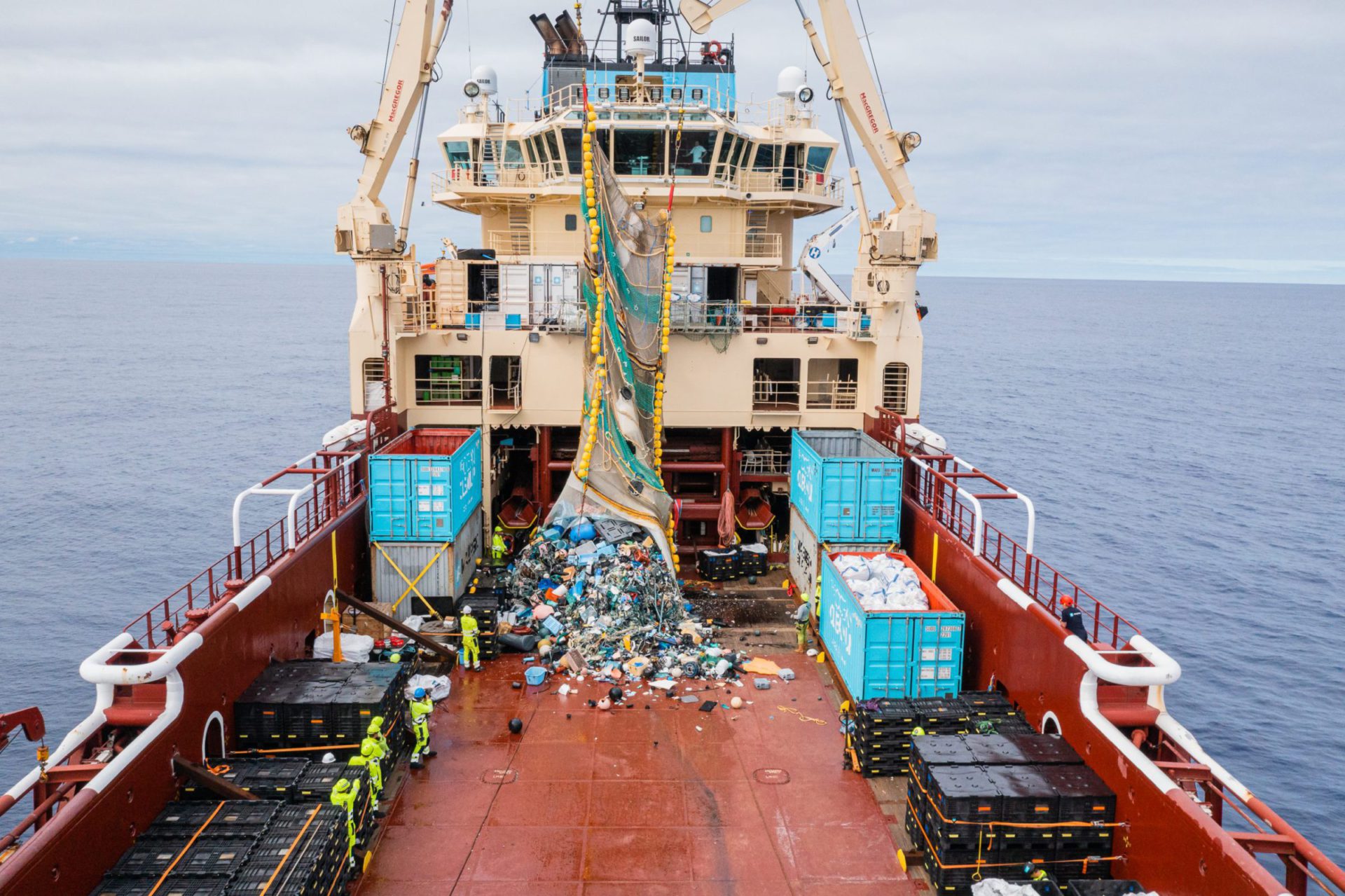Humanity can do more than one thing at the same time,” says Boyan Slat, the founder of Ocean Cleanup. Put like that, his project would not seem terribly controversial, but it is. The nonprofit, which catches trash out of the world’s most polluted waters, has become a flashpoint in the ongoing debate between two camps of environmentalists. Slat sees technological innovation as a cure for the harms of technological innovation. His detractors view Ocean Cleanup as misguided at best, and as a distractingly viral harm at worst.
Boyan Slat, 30, is Dutch, has the affect of a college student, and a knack for Internet virality, from the TEDx talk that first made him popular when he was still a teenager to his collaboration with YouTube celebrities Mark Rober and MrBeast.
His Ocean Cleanup’s “interceptors” have evolved in their design over time, but all share some common elements. They sit across water flows, especially rivers, and slant a metal grate upwards out of the water to catch debris as it floats on the surface. They are deployed across rivers because, according to Ocean Cleanup, 80 percent of the world’s plastic debris enters the ocean from about a thousand rivers. Scoop up plastic as it comes out of those rivers, and use heavy-duty “floating systems” in the ocean to sweep up regions like the Great Pacific Garbage Patch, and you’ve largely solved the problem of plastic pollution in the world’s waters, or so the thinking goes.
It’s possible that some of the opposition to Ocean Cleanup is that it feels tacky. Slat is a nerd, and Ocean Cleanup is pitched perfectly to the normie. Their slickly produced videos take advantage of a public that loves HGTV and makeover videos. Coldplay sponsors two of their interceptors.
But activists point to another challenge: that there is far too much plastic to be cleaned up in our rivers and oceans. Trying to remove it, rather than punishing plastic-producing corporations and consuming less, is pointless, they say.
Meanwhile, Ocean Cleanup claims to have removed some 40 million pounds of plastic so far, from Thailand and India to Indonesia and Guatemala and elsewhere.

Ocean Cleanup emphasizes that it is only part of the solution and that recycling practices need dramatic overhaul. But if it succeeds in the long run, it will be a distinctively practical success story: engineers hacking together a technological solution, focused not on activism but on getting things done.